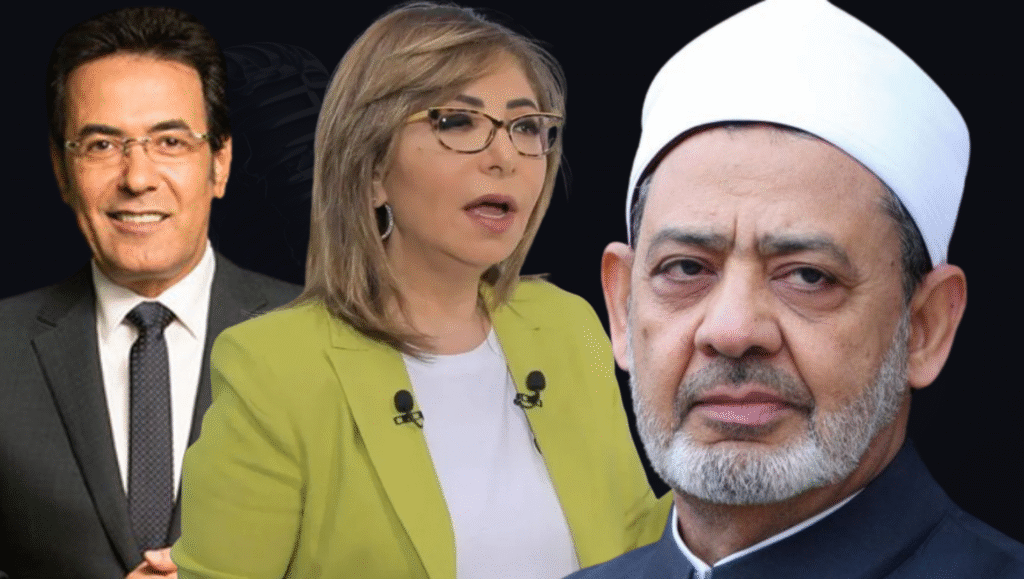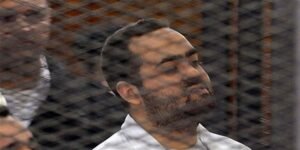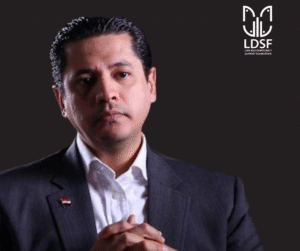
Law and Democracy Support Foundation condemns the removal of Al-Azhar Sheikh’s statement, suspension of TV programs hosted by Lamees El Hadidi and Khairy Ramadan, and arrest of a young man for raising a protest sign
Today, Law and Democracy Support Foundation condemned the sharp escalation in systematic restrictions imposed by Egyptian authorities on freedom of expression and media freedom — now expanding to include the Grand Imam of Al-Azhar, who is supposed to operate independently, as well as journalists and TV channels managed by the United Media Services company, which controls Egypt’s media landscape and maintains undisclosed ties to state security agencies.
On Tuesday, July 22, 2025, Al-Azhar’s official Facebook page published a statement by Sheikh Ahmed Al-Tayeb, the Grand Imam of Al-Azhar, strongly condemning Israeli attacks on the Gaza Strip and calling for urgent action to save residents of the Strip from starvation. The statement was mysteriously deleted minutes later. Multiple sources confirmed the deletion came under political pressure from powerful state agencies.
According to the Egyptian constitution, Al-Azhar is the highest official religious institution in the country and must operate independently. Yet the Egyptian regime — especially under the current president, Abdel Fattah El-Sisi — has persistently sought to assert control over Al-Azhar and subordinate it to the state. Despite failing in its attempt to amend the constitution to reduce the Grand Imam’s independence, the regime continues to pressure the institution through security and political means aimed at controlling its public positions and messaging.
On July 16, 2025, United Media Services — described by observers as a key state apparatus for media control — abruptly announced the termination of its contract with prominent pro-regime journalist Lamees El Hadidi, host of the talk show “Kalima Akhira” (Last Word) on ON TV, without providing any justification for the decision.
However, the termination came shortly after El Hadidi publicly called for holding those responsible for recent deadly road accidents accountable, during her June 28 episode that covered a horrific crash on Egypt’s regional ring road that killed 18 young women working in grape harvesting.
Similarly, the talk show of well-known pro-regime host Khairy Ramadan was suddenly taken off air after its July 7 episode, in which several truck drivers openly criticized road infrastructure. The episode, which addressed a series of fatal traffic incidents for which authorities refused to accept responsibility, was abruptly cut short by an imposed commercial break and ended without explanation.
Earlier, human rights organizations had issued a statement calling for the dismissal of Transport Minister Kamel El-Wazir — a former military officer — and the prosecution of officials responsible for the recent tragic accidents on Egyptian roads.
Separately, on July 20, 2025, Egyptian security forces arrested a young man, Moamen Hosni, in downtown Cairo after he raised a sign reading “Down with Military Rule.” He remains in detention at the time of this statement.
Since President Abdel Fattah El-Sisi officially came to power in 2014, dozens of journalists and thousands of activists and opinion-holders have been imprisoned, some for years, solely for expressing their views peacefully. Over 500 media outlets, independent websites, and platforms run by rights organizations remain blocked in Egypt, as part of a systematic effort by authorities to silence dissenting voices.
Karim Abdelrady, Executive Director of Law and Democracy Support Foundation, stated:
“After Egypt’s authorities tightened their iron grip on traditional media and employed mass internet censorship to suppress online expression — alongside campaigns targeting the independence of civil society organizations and human rights defenders, and the criminalization of peaceful protest through sham investigations and trials under the protest law — they are now demonstrating a fierce determination to shut down the public sphere entirely. Even state-affiliated media and official institutions are not spared if they express opinions that differ from the regime’s narrative — even when not directly critical. The message is clear: under this regime, Egypt has space for only one voice.”
Abdelrady added: “Egypt’s authorities — including its military-backed president Abdel Fattah El-Sisi — consistently reject calls from civil society and political actors to stop using security-based solutions to silence free expression. This approach poses a grave threat to the country’s political trajectory, creating opportunities for violent and extremist currents to position themselves as the only alternative, in the absence of any peaceful channels for public dissent. This deepens the ongoing crisis of injustice and erosion of the rule of law in Egypt.”
Law and Democracy Support Foundation emphasizes that the Egyptian government — which routinely claims to be engaged in an all-out war against terrorism and extremism, and exploits that claim to justify its crackdown on public freedoms — must realize that security measures alone will not bring long-term stability. The authorities must allow space for peaceful expression, release political prisoners, enable independent organizations and media outlets to operate more freely, and cease targeting voices that differ from the regime’s line.






